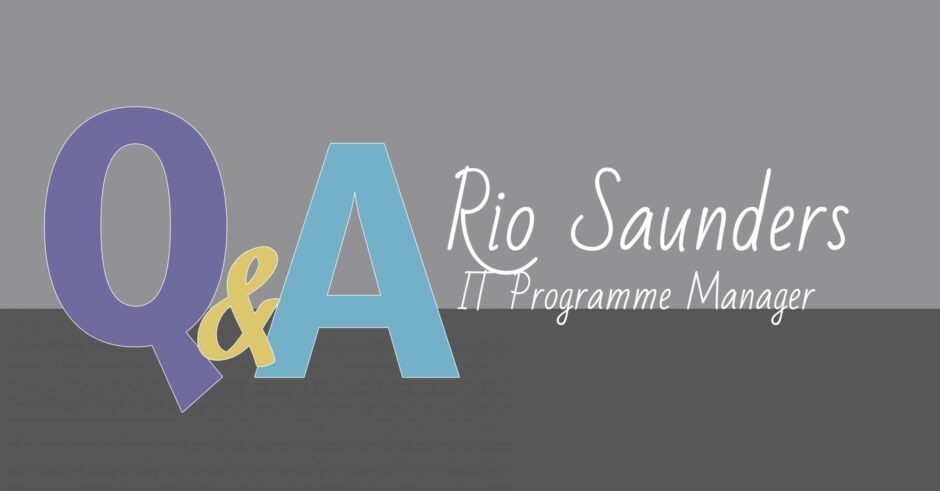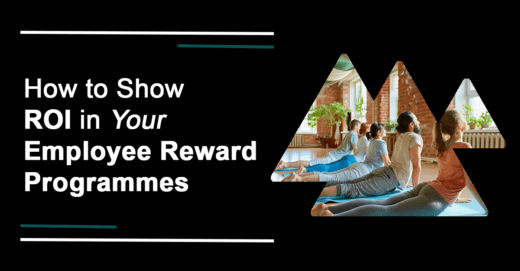Could you introduce yourself and what you do?
My name is Rio Saunders, I am a business and customer focused IT programme manager. I previously spent 5 years in senior PMO roles working for global organisations within the construction, pharmaceutical & finance industries. I am extremely passionate about delivering transformation that enhances the end users capability to provide an elevated customer experience.
Artificial Intelligence and Machine Learning are hot topics at the moment, especially with the rise of Fintechs, but how would you say the ‘fourth industrial revolution’ is affecting organisational cultures?
To quote Stephen Hawkings “the 21st century is the century of complexity”. What we are witnessing is traditional services being disrupted by technologists who have identified a better quicker way to service the customer.
What customers want now will be very different in 5 years. Traditional organisations must now focus on implementing deep tech and the infrastructure for the future, in order to react quickly to customer’s ever-changing needs.
If significant change programmes that focus on educating the talent to look at data in innovative ways are not undertaken, an organisation’s growth will suffer. Embedding an empowered culture whereby people can respond with that knowledge is also critical. The organisation’s talent is closest to its customers, therefore, enhancing the channels and opportunities to engage with them must be another key enabler to ensure the customers end to end journey is a pleasurable experience – which is the key to retention.
Many traditional financial institutions are beginning to feel threatened by Fintechs, but how could the effective and efficient use of data help traditional banks keep up?
Digitisation is enabling us all to be heard. The sharing of thoughts are the drivers for continuous change within organisations, allowing them to service the customer better.
There are numerous ways data can be used to improve how traditional banks operate, however, there are significant challenges they need to address.
They need to know what problems they want to solve with the data they have available. Sounds obvious but many times it gets diluted during the lifecycle of the project. Commonly the end user/customer requirements/actual use cases were not completely fleshed out.
Commitments are made to boards, and governance strangles the ability to react to the necessary change. From my experience, the governance/decision time needs to be drastically reduced. Removing the bureaucracy gives traditional banks a better chance of being able to respond to the ever-changing needs of its customer like the challenger app banks.
The project goes ahead, but actually isn’t delivering the essential benefits which has a negative effect on all involved: The time, money, and market share lost, and ultimately the impact to both the organisation’s talent pool and customer retention.
Fintechs are essential for traditional banks to learn from as they just don’t have the innovative talent internally, as technology is not their core business. Maybe as they look to the future they should establish innovation hubs with data scientist, engineers and modellers that can design bespoke technology to solve their problems? If these hubs truly operated as an interactive function, then it would support driving the focus on a data culture, whereby data is not just collected it is used innovatively to serve the customer.
Many organisations approach cultural change in a reactive manner, with a barrage of internal communications. In the case of internal communications on cultural change is it news or just propaganda? If it is just propaganda, what can we do to change this outlook?
Regardless of the change, if it’s going to be embedded into an organisations DNA it’s implemented by a process.
A sense of urgency has to be identified, which then requires a strong group of ‘reinforcers’ throughout the organisation who constantly communicate the vision via every channel and medium available. However, the real shift starts from outward vocalisation and visibility of the cultural behaviours that embody the new principles and values. This needs to be significantly different from internal communications of messages which rarely impact anything other than the deleted mailbox.
People must be empowered to act in alignment with the visions, meaning if people do not exhibit the right behaviours, they are actively coached until they are onboard or they are exited. As long as the messages have always been driven by data, conveyed with optimism and realism, then it is not a surprise… it’s the expected outcome. This is fair as businesses should not be expected to carry people that do not strive to make the organisation a better place for everyone working there.
This interview is exclusive to The Business Transformation Network.





